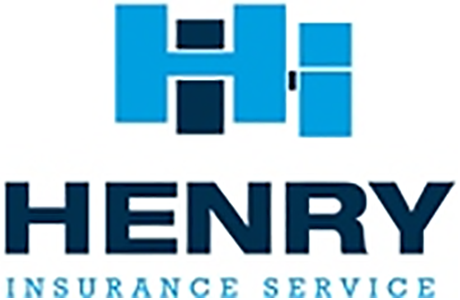Over the past several years, you’ve likely heard buzz about the proposed tort reform in Louisiana. Recent updates may affect everything from how long you have to file a personal injury claim to how much you can financially recover in court. These reforms aim to reduce car insurance rates, which are among the highest in the country.
Let’s take a closer look at recent news regarding Louisiana Tort Reform and how Henry Insurance can help you navigate it.
What is Tort Reform and Why Is It Happening in Louisiana?
Tort laws are a type of civil law that provide rules that govern how lawsuits and insurance claims work. Unless you’ve never looked at a billboard, you know that Louisiana is home to numerous injury attorneys. So, combined with the extreme weather dangers of hurricanes and flooding, auto insurance claims abound. Some proponents argue that greater clarity is needed, and tort reform ought to be rebranded as “lawsuit abuse reform.”
As anyone with multiple motorists in the family or a teenage driver knows, auto insurance is a huge expense that can demand nearly 7 percent of your income. So, what would be the catalyst for meaningful change? Some say cutting back on lawsuit costs and limiting large payouts. Insurance companies argue that fewer big claims will mean more competition and lower rates. But, critics counter with examples of past similar changes that didn’t move the needle on pricing in a meaningful way. However, the most meaningful changes sought by business and industry were blocked from being fully implemented. Half measures were always destined to provide little or no relief. But, why is it so bad in Louisiana in the first place?
Why Tort Reform is Needed in Louisiana
The cost to repair damaged vehicles in Louisiana is in line with the national average; however, Louisiana policyholders file claims for injuries after a wreck almost twice as often as the national average. And, the average amount paid per injury claim is 59% higher as well. Louisianians are also more than twice as likely to sue for injury damages after an accident than the national average.
The excessive litigation drives up prices for insurance companies, who are already unprofitable, driving insurance premiums higher and effectively making the market uncompetitive. We all want to pay less for our insurance, but what needs to be addressed?
Here are the Key Issues:
Admissibility of Phantom Damages (Medical Transparency)
Many states permit evidence of billed medical costs, but do not permit evidence of what was actually paid. After insurance, rate negotiation, and other significant adjustments, the difference between the paid medical costs and the billed medical costs, also known as phantom damage, may be quite vast and may even generate a windfall profit for plaintiffs. Phantom damages create disproportionate economic damage recoveries in personal injury lawsuits, creating a higher baseline for non-economic damages. Current proposals simply aim to provide greater transparency to juries by permitting into evidence what was actually paid for medical care, not just the billed amount.
Third-party Litigation Finance
Popularly known as “lawsuit lending,” Third-party Litigation Finance occurs when a disinterested, third-party, often a firm with a billion-dollar portfolio, takes on the cost of litigation for the plaintiff with the understanding that upon winning the lawsuit, the plaintiff will repay the lender with interest on the verdict – a percentage of the final settlement. Since it is largely unregulated, this practice is rife with abuse, essentially incentivizing plaintiffs to pursue larger settlements to repay their loans. Though Louisiana does not currently restrict plaintiffs’ ability to enter into such agreements, new bills in the legislature seek to increase transparency through a variety of key proposals, including a cap on the profits that financiers can recover to protect plaintiffs and prevent predatory lending practices.
Comparative Fault
In Louisiana, we have pure comparative fault. This means that you can sue to recover damages in an accident, even if you are at fault. Taken to the extreme, in an accident where you are 99 percent at fault, you can still sue to recover from the party with only 1 percent negligence. So, we need some form of modified comparative fault, as outlined in the new proposals. These bills propose a limit on the amount of damages for the party most at fault (over 51 percent) could recover in an accident. Ultimately, this puts the necessary safeguards in place to prevent the law from rewarding negligence. (HB431)
Reversionary Trust
Revisionary Trusts aim to ensure that damage awards for future medical care actually go toward their intended purpose of ongoing medical treatment. When a plaintiff receives an awarded compensation for anticipated future medical expenses, those funds are placed into a trust, and only distributed as legitimate medical costs arise. Essentially, this prevents plaintiffs from receiving lump sum payouts that they may not use or require. If any funds remain unused, they return to the defendant or insurer, which helps prevent overcompensation. Current proposals promote revisionary trusts as a safeguard against excessive judgments and lawsuit abuse.
We’re Here to Help
At Henry Insurance, our job is to stay on top of legal and policy changes so you don’t have to. If you’re confused about how these laws affect your current policy, coverage options, or what to do after an accident, just give us a call. We’re proud to serve the Baton Rouge community with expert guidance, personalized policy packages, and a friendly face to help you when you need it most.
Need to review your coverage? Contact Henry Insurance.

